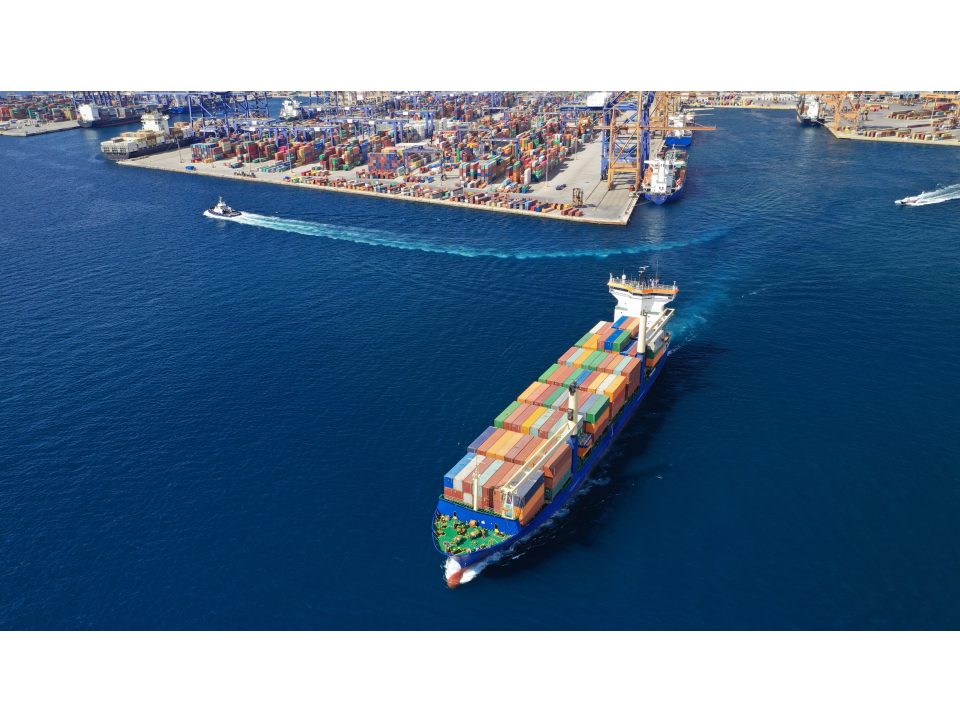Discover the content of the session: "Adapt to climate change"
- The effects of global warming on the coastline, ports and estuaries are already visible and are likely to increase if we do not react in measures to mitigate greenhouse gas emissions. Beyond climate change mitigation actions, territories as well as infrastructure managers and service providers will have to adapt to climate change, and sometimes, locally, in a way that is disruptive compared to what has been done until now.
The environmental transition of transport is an essential point in the mitigation of greenhouse gas emissions, because transport is the first concerned by gas emissions. This concerns both ports and inland waterways. Innovative solutions using new modes of propulsion or the use of data to reduce journeys are being studied.
Organizer
CEREMA (France)
programme
Monday 26th September 2022
2pm – opening of the session
Michel Cousquer(102)
(102) CEREMA, France2.05pm – Findings and perspectives
- Sea Level evolution scenarios
Régis Soenen(102)
(102) CEREMA, France
- Sea and coastal French national strategy
Olivier Laroussinie(102)
(102) CEREMA, France
2.35 pm – Maritime transport and environmental transition
- Eco-designed ships and climate resilient naval shipyards
Gaëlle Rousseau(3) and Marie Lévêque(3)
(3) Naval Group Technical Direction of Innovation, France
[Read the abstract]
- CO2 CAPTURE SYSTEM (CCS) ON SHIP – Design and integration study of a post combustion technology on existing container ship in order to reduce CO2 emission and extend ship life
Valérie Cariou(87)
(87) Sofresid, France
- Using digitalisation for decarbonisation of the shipping industry
Nitin Agarwala(78)
(78) National Maritime Foundation, India
3.20 pm – Discussion on "Findings ans perspective" and "Maritime transport and environmental transition"
3.30pm – Break
4pm – Evolution of the coastline
- Cerema's contribution to ICZM
Amélie Roche(102)
(102) CEREMA, France
- Mapping coastal erosion hazards in response to the French climate and resilience law
Marissa Yates(102)
(102) CEREMA, France
4.45pm – Port adaptation and mitigation measures
- Climate change: accelerating the territorial resilience of the Gironde estuary
Fabrice Klein(151)
(151) Port de Bordeaux, France
- Assessment of atmospheric carbon dioxide in seashore and port areas of east coast India
Madhusmita Dash(1), Anandasabari Karthikeyan(1), and Rajasekhar D.(1)
(1) National Institute of Ocean Technology, India
[Read the abstract]
- Methodology of emission maritime shipping assessment
Vincent Nineuil(102) and Jean-Marc André(152)
(102) CEREMA, France
(152) CITEPA, France
- French report on ports and inland waterways adaptation to climate change; General overview of the session
Geoffroy Caude(153)
(153) Conseil général de l'environnement et du développement (CGEDD), Ministère de la Transition écologique & AIPCN, France
5.45pm – Discussion on "Evolution of the coastline" and "Port adaptation and migitation measures"
- Closing of the session
Michel Cousquer(102)
(102) CEREMA, France
Abstracts
Eco-designed ships and climate resilient naval shipyards
Gaëlle Rousseau(3) and Marie Lévêque(3)
(3) Naval Group Technical Direction of Innovation, FranceNaval Group is committed to the maritime energy and ecological transition through strong CSR initiatives out of which 6 on environmental matters. They include the reduction of the carbon footprint, eco-design of ships, green technology options for customers, living conditions onboard, climate resilience, impact on biodiversity.
Naval Group envisions to reduce by 5% per year its GHG emissions to fulfill the Paris Agreement commitments through energy consumption reduction on industrial sites, data center rationalization. Naval Group also evaluates the Carbone footprint of his ships.
Naval Group leads an eco-design approach for 10 years and shares a R&D roadmap for green innovations with his partners on energy consumption control, energy management and storage, new fuels, hybrid and full electric propulsion, innovative architectures, hydrodynamics, energy generation incl. fuel cells. But also, innovations to reduce the environmental impact of ships, such as waste treatment, resources saving, underwater noise reduction.
Climate resilience of the shipyards is a challenge addressed by Naval Group to propose resilient ships and infrastructures to his clients.
Naval Group also contributed with the Cluster Maritime Français to the creation of the Maritime Eco-Energy Transition Institute.
Challenges of coming decades out of compliance to strengthening regulation, will be the evolution of customers vision, needs and the shipyard’s missions linked to climate change.
New technologies will lead energy management to be a competitive advantage.
Assessment of atmospheric carbon dioxide in seashore and port areas of east coast India
Madhusmita Dash(1), Anandasabari Karthikeyan(1), and Rajasekhar D.(1)
(1) National Institute of Ocean Technology, IndiaIndia’s large population and rapid industrialization in the coastal areas results increasing greenhouse gas emissions. The fossil fuel emissions have increased drastically in the last three decades. The anthropogenic input of greenhouse gases (GHG) such as CO2 and CH4 acts key contributors to climate change. The greenhouse emissions are measured in terms of the CO2 equivalents, referred as CO2 emissions. This study mainly focused on the increase concentration of CO2 gas, its causes and solution to reduce the carbon emission. The present study was carried out using the ship-based measurements of atmospheric CO2 concentrations and temperature from the coastal areas (includes major ports, harbor and ship transits) of east coast of India. The study has utilized two years data sets from the period of March 2020 to March 2022. It was observed that the CO2 concentration ranges from 350 to 550 ppm for the entire period. The maximum temperature was noticed during large concentration CO2. The maximum CO2 value was associated with the industrial emissions, major ports and harbor activities and ship freight operations. The study also exhibited massive change in the concentration of CO2 and temperature during the Covid-19 pandemic due to the country lockdown. The technology-based solutions can be achieved by adopting the bio-fuel energy utilization in the shipping industry which will result the emission reduction factor of five to six. Industrial research and development, policy making initiatives are cornerstone for GHG emissions reduction and successful sustainability strategy.
- Sea Level evolution scenarios







